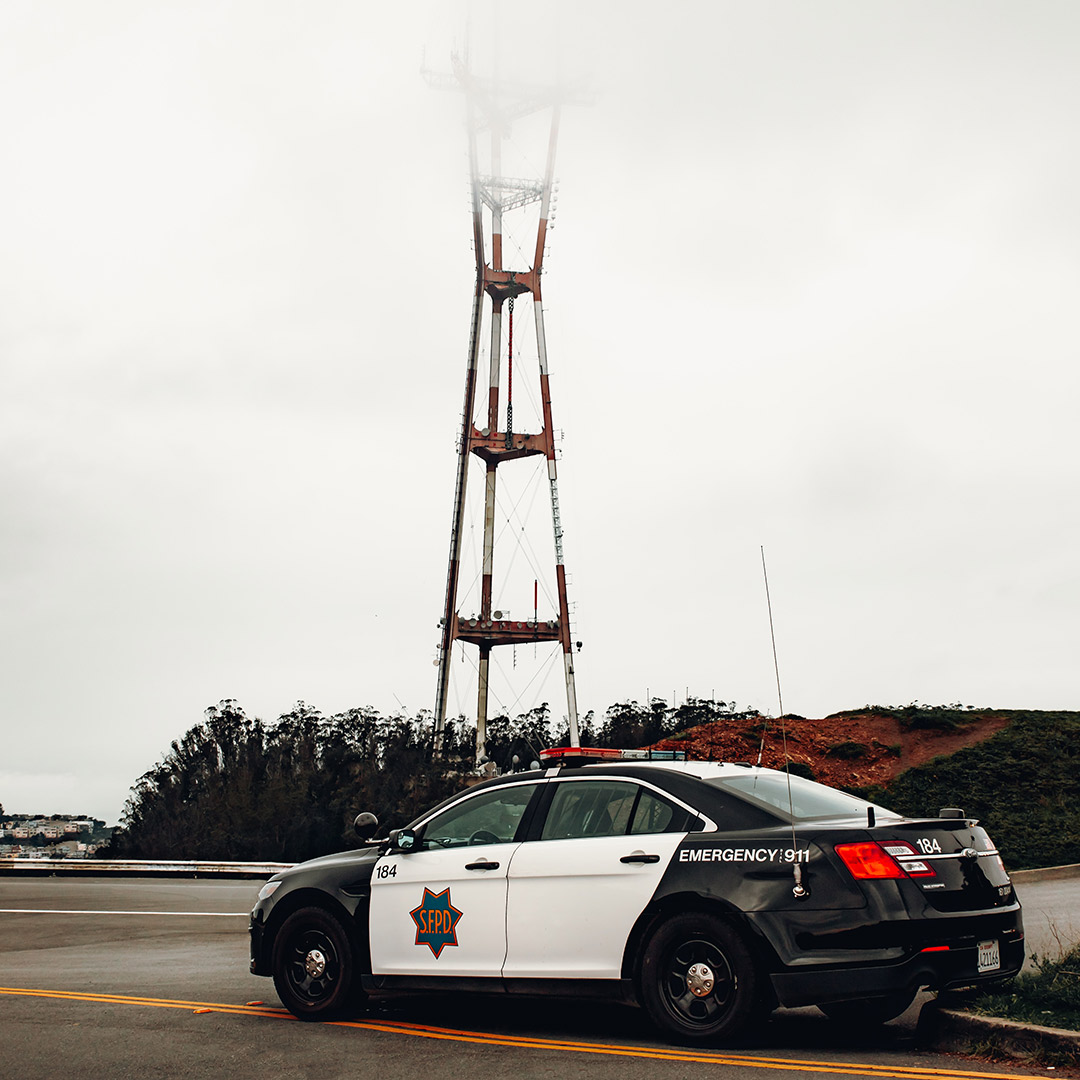Credit for Prior Learning
You’ve gained valuable knowledge through your work and life experience. At SFSU, you may be able to earn credit for what you’ve already learned through a Prior Learning Assessment (PLA). This can help you finish your degree faster.

Who Is Eligible?
Students in the Criminal Justice Studies program with experience in the following areas may qualify:
- Law enforcement
- Military training and service
- Other related fields
If you have relevant experience not listed here, contact us to see if you may be eligible for assessment.

Law Enforcement
A career in law enforcement comes with a great deal of training. Find out if the training you have received may be eligible for Credit for Prior Learning by checking the Pre-Approved Credentials List.
If you work in law enforcement, your professional training may count toward your degree. Check the Pre-Approved Credentials List to see if your training qualifies.
Pre-Approved Credentials that May Be Eligible for Credit for Prior Learning
| Course Abbreviation | Course Title | Units | Accepted Certification | Requirements |
|---|---|---|---|---|
| C J 400 | Police and Public Policy | 3 | Proof of Training, Certificates, Letters from Employers, 4 - 6 page papers summarizing their duties, responsibilities and experiences. | Police Officer or County Sheriff with Patrol Duties, Academy Graduation and 5 years experience |
| C J 401 | Criminal Profiling | 3 | Proof of Training, Certificates, Letters from Employers, 4 - 6 page papers summarizing their duties, responsibilities and experiences. | Law Enforcement Officer with Investigative Responsibilities in Enforcement Operations, Gang Unit, Investigations, Specialized Units (Robbery, Homicide, SVU, etc.) |
| C J 405 | Organized Crime | 3 | Proof of Training, Certificates, Letters from Employers, 4 - 6 page papers summarizing their duties, responsibilities and experiences. | Officers assigned to specialized units investigating Gangs, Narcotics, Members of Task Forces, Investigators from agencies at local, county, state and federal agencies. |
| C J 410 | Crime Scene Investigation | 3 | Proof of Training, Certificates, Letters from Employers, 4 - 6 page papers summarizing their duties, responsibilities and experiences. | Officers who do preliminary investigations, collect evidence and process. Civilian or sworn. Evidence or Crime Scene Specialists and Techs. |
| C J 450 | Jails and Prisons | 3 | Proof of Training, Certificates, Letters from Employers, 4 - 6 page papers summarizing their duties, responsibilities and experiences. | County Sheriff Officers, Deputies and Correctional Officers with trainingand experience at local, county Jails, State and Federal Prisons, Private Prison Systems. |
| C J 470/SOC 452 | Juvenile Justice | 4 | Proof of Training, Certificates, Letters from Employers, 4 - 6 page papers summarizing their duties, responsibilities and experiences. | SROs, Officers assigned to schools, Investigators in Juvenile Justice, Youth Counselors, including Probation and Attorneys. |
| C J 480 | California Corrections System | 3 | Proof of Training, Certificates, Letters from Employers, 4 - 6 page papers summarizing their duties, responsibilities and experiences. | County Sheriff Officers, Deputies and Correctional Officers with trainingand experience at local, county Jails, State and Federal Prisons, Private Prison Systems. |
| C J 502 | Criminal Procedure | 3 | Proof of Training, Certificates, Letters from Employers, 4 - 6 page papers summarizing their duties, responsibilities and experiences. | Police and Sheriffs with training and more than 3 years experience. Attorneys, Paralegals, Interns with police and DA and Probation. |
| C J 550 | School Violence and Discipline | 3 | Proof of Training, Certificates, Letters from Employers, 4 - 6 page papers summarizing their duties, responsibilities and experiences. | SROs, Officers assigned to schools, Investigators in Juvenile Justice, Youth Counselors, including Probation and Attorneys. |
| C J 600 | Youth Gangs in Community Context | 3 | Proof of Training, Certificates, Letters from Employers, 4 - 6 page papers summarizing their duties, responsibilities and experiences. | SROs, Officers assigned to schools, Investigators in Juvenile Justice, Youth Counselors, including Probation and Attorneys. |
Email the online success coach.

Military Training and Service
SFSU values the learning gained through military service. If you’re active duty or a veteran, you’re encouraged to submit your Joint Services Transcript (JST) for review.
SFSU uses American Council on Education (ACE) credit recommendations to evaluate your JST. If a course doesn’t qualify through ACE, you may still be able to earn credit through a Portfolio Assessment. This allows you to show your learning and petition for credit.

Portfolio Assessment
If your professional experience doesn’t fit a standard exam, you may be able to earn credit by creating a PLA Portfolio. This is a written paper that shows how your prior learning matches the outcomes of a specific SFSU course.
A strong PLA Portfolio demonstrates that your experience is equal to what you’d learn in the class. The professor who teaches the course will review your work and decide if it meets the learning goals.
Key details:
- Credit is awarded as credit/no credit
- It won’t affect your GPA or count toward residency units
- A fee is charged for each portfolio submitted
Good candidates for portfolio assessment:
- Have flexibility in their degree plans
- Have 4–5 years of relevant professional experience
- Are comfortable writing a 5- to 10-page paper
If you have a course in mind that you’d like to petition through PLA Portfolio, contact the online success coach for help getting started.